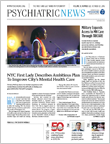Psychotherapy is one of psychiatrists’ fundamental and unique skills. Although many aspects of psychiatry are taught in medical school, exposure to psychotherapy is often minimal at best for medical students. We believe that demonstrating this expertise so that medical students can learn the basic principles of psychotherapy provides several benefits: bolstering recruitment, providing students with more sophisticated interpersonal skills for their future practice (regardless of their chosen specialty), and enhancing respect for the field of psychiatry among all future physicians.
We’ve recently been meeting with the 15 medical students in our graduating class who are applying for psychiatry residencies, and every single applicant, including several M.D.-Ph.D. candidates, want to be sure that their future residency program will give them significant psychotherapy training. Furthermore, every student describes the opportunity for human connection as one of the primary reasons for choosing psychiatry. Our department includes many cutting-edge basic science researchers, and our medical school offers a particularly in-depth neuroscience course, but we believe that one of the strengths of our medical student education program in psychiatry is the exposure to psychotherapy that we provide.
This exposure begins with two lectures in the preclinical curriculum on psychodynamic and cognitive-behavioral psychotherapy. This initial introduction presents the material in understandable, jargon-free language that emphasizes empathy for patients and their suffering and includes clinical vignettes that demonstrate the clinical relevance of the basic concepts, such as unconscious conflict. The vast majority of students have a positive response to these lectures, as reflected by the following comment: “I was a psych major in undergrad and have never had psychodynamics explained to me in a way that seemed like more than psychobabble, but she made the tenets seem perfectly reasonable and plausible.”
The psychiatry clerkship takes a twofold approach in continuing to address the topic. First, the importance of self-awareness and recognition of one’s emotional responses to patients is introduced at orientation and reinforced during the clerkship with a written reflection assignment followed by a group discussion on the topic of “intense emotional responses.”
As described in the May/June 2012 Academic Psychiatry by M.J. Devlin, J.L. Cutler, and O.L. Harper, the focus is on recognizing one’s feelings and achieving a more balanced empathic stance, essentially dealing with countertransference. The application of this approach to the patients that these future physicians will see in nonpsychiatric settings is emphasized and readily adopted by our students, as the following comment illustrates: “I gained a deeper understanding of myself, those around me, and my relationships, and I sharpened my interviewing skills, my write-up skills, and my ability to look for subtle cues in an interview. These are important skills relevant to not only psychiatry, but any field in medicine.”
Second, a two-part seminar on psychodynamic psychotherapy is included in the core didactics required during the clerkship, as described in the April Academic Psychiatry by E.P. Bender. A case, including process material, is presented by an analyst who focuses on engaging the students in the experience of “thinking like an analyst,” for example, identifying the patient’s transference themes and suggesting trial interpretations. Most students find this experience eye opening, as the following comments indicate: “Phenomenal, … very interesting, and showed us a part of psychiatry we didn’t always see on the inpatient unit.” “Made psychodynamic psychotherapy much more legitimate and interesting.”
One of our graduates, Michael Ayers, M.D., recently reflected on the relevance of his medical school exposure to psychotherapy to his work as an internal medicine resident and future cardiologist: “Largely because of my exposure to psychotherapy, I spend much more effort thinking about the patients’ motivations behind their feelings. What is it that they really want? What is it that they think I really want? Once I identify what their motivations are, I can then work to alter and position my goals so they are in line with theirs. Once we ‘want the same thing,’ the situation is suddenly no longer confrontational, and we have a healthy therapeutic alliance.”
Beyond our own institution, our anecdotal impression is that students are hungry for this kind of exposure. Speakers on psychodynamic topics are among the most requested at PsychSIGN (Psychiatry Student Interest Group Network) meetings sponsored by the American Psychoanalytic Association. PsychSIGN President James LePage recently explained, “Speaking for me personally, as a medical student planning to go into psychiatry, I would have absolutely loved learning more about psychotherapy during medical school. We got some of the basics about the various options and specific situations where each is indicated, but it was very general information.”
David Mintz, M.D., a particularly popular PsychSIGN speaker, describes his approach to the topic in the August 2013 Journal of the American Psychoanalytic Association.
We encourage skilled psychiatrists to teach medical students the basic principles of psychotherapy so that our field can continue to recruit humanistic physicians, and patients in all specialties can benefit from their care. ■
Academic Psychiatry can be accessed at
here. The
Journal of the American Psychoanalytic Association is available
here.

